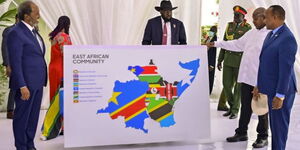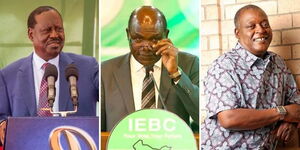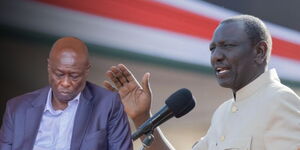Kenyan households and businesses are facing yet another hike in electricity bills this August, with the latest adjustments by the Energy and Petroleum Regulatory Authority (EPRA) pushing up costs by approximately 1.5 per cent.
This increase, driven by escalating fuel energy costs and foreign exchange fluctuations, marks the second consecutive month of rising electricity prices.
The energy regulator's revised tariffs indicate that consumers will now pay Ksh348 cents per kilowatt-hour (kWh), up from Ksh325 cents per kWh in July.
The adjustment, detailed in a gazette notice dated August 9, has sparked concern among consumers already grappling with the high cost of living.
EPRA's latest review is attributed to a significant rise in the Fuel Energy Cost (FEC) charge, which has jumped to Ksh3.48 per unit from Ksh3.25 per unit last month.
Additionally, the Foreign Exchange Rate Fluctuation Adjustment (Ferfa) has increased from Ksh0.98 per unit to Ksh1.17 per unit.
The Water Resource Management Authority (Warma) levy, however, remains unchanged at two cents per unit.
For the average Kenyan household, this hike means paying more for the same amount of electricity.
Last month, a domestic consumer using 60 units of electricity paid Ksh1,807.92. With the new tariffs, that figure is expected to rise, placing additional strain on household budgets.
EPRA Director General Daniel Kiptoo, in the gazette notice, explained that the adjustments are necessary to reflect the changing costs of fuel and forex, which significantly impact the overall cost of electricity production.
He stated, "All prices for electrical energy specified in Part II of the Schedule of Tariffs, 2023, will be liable to a fuel energy cost charge of plus 348 Kenya cents per kWh for all meter readings to be taken in August 2024."
This latest hike follows a reduction in power bills announced in April by Kenya Power, which was intended to provide some relief to consumers amid rising fuel costs. However, the reprieve was short-lived, with electricity prices climbing again in June and now August.
In April a reduction saw domestic customers consuming less than 30 units per month paying Ksh629, down from Ksh729 in March 2024. Those who consumed 60 units enjoyed an 11.2 per cent reduction, with bills dropping to Ksh1,574 from Ksh1,773.
But these gains have been eroded by the subsequent increases, leaving many Kenyans questioning the sustainability of the current energy pricing model.
The rising cost of electricity has broader implications for the Kenyan economy, particularly for the manufacturing sector.
In a bid to alleviate some of the pressure, President William Ruto announced a 50 per cent reduction in electricity tariffs for night-time production, starting from May 1.
This move was intended to encourage manufacturers to shift production to off-peak hours, thereby easing the burden of high electricity costs.
President Ruto's administration has been under pressure to address the high cost of electricity, which has been a persistent issue for investors and consumers alike.
The latest tariff adjustments, however, highlight the ongoing challenges in balancing energy affordability with the realities of fuel and forex market fluctuations.












